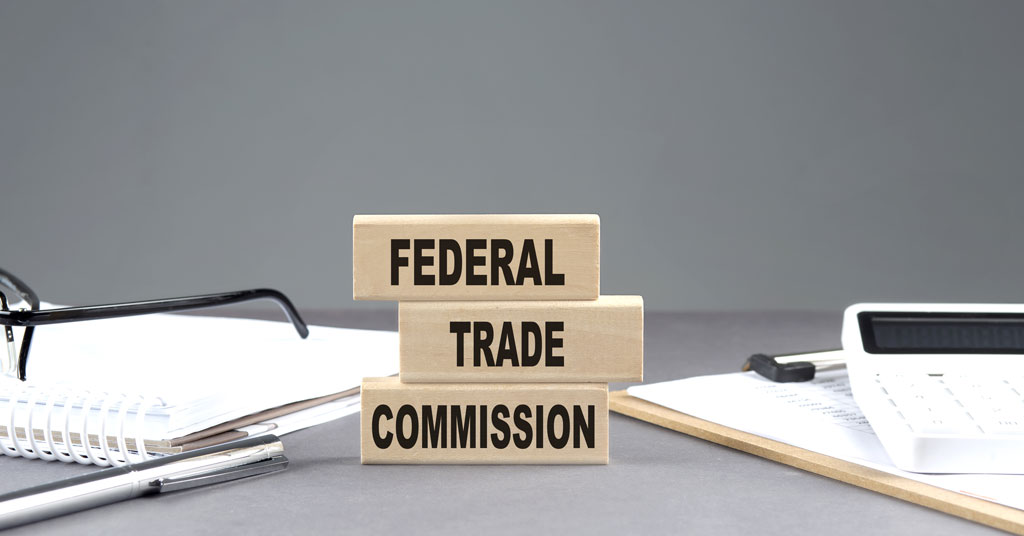The Giant Has Awoken: Franchisors in FTC's Crosshairs

Editor’s Note: “On March 10, the FTC announced that it was seeking specific public comment about the relationship between franchisees and franchisors and the amount of control exerted by franchisors in a typical franchise agreement,” Ron Gardner wrote in the following article, published on April 6 in the New York Law Journal. His article appears below. The next article, from the IFA, is their response. In the interests of presenting two sides of the argument, we’ve run both pieces in this newsletter and invite additional opinions and responses at [email protected].
Almost four years ago (and a couple of times since then), I predicted in these very pages that if franchisors did not cease their endless attack on any effort to be regulated, even in the face of the most egregious conduct, the consequences might result in significant change in the regulations and legislation that control both the sale of franchises and the relationship between franchisors and franchisees.
From where I sit, the efforts to avoid any type of regulation will ultimately backfire. The overreach in the typical franchise agreement will cause a need for correction at some point, and as is the case with most corrections that come from legislation and regulation, over-correction is a real risk. Franchisors and their lawyers would be well advised to consider that as they continue to exert more and more control over their franchisees. (See Ronald K. Gardner, “Franchising from the Franchisee Lawyer Perspective,” Law.com, Sept. 27, 2019.)
Almost four years ago (and a couple of times since then), I predicted in these very pages that if franchisors did not cease their endless attack on any effort to be regulated, even in the face of the most egregious conduct, the consequences might result in significant change in the regulations and legislation that control both the sale of franchises and the relationship between franchisors and franchisees. It appears that day may be at hand.
A brief refresher. Currently, the only federal regulation that applies to franchising is what is colloquially called “the FTC Rule.” (See 16 FR Section 436.) Modeled after securities regulations, this rule requires franchisors to make certain disclosures about their offering to allow prospects to evaluate that prospective opportunity adequately. Unfortunately, the rule has no private right of action, and the FTC has undertaken a total of one significant action against a franchisor in the last 25 years. In essence, under federal law, there is no regulating the conduct of franchisors, either in the sale of franchising, or in their relations with franchisees.
States have done slightly better. Thirteen states have laws that regulate the sale of franchises, and others have laws that regulate the relationship with franchisors (e.g., preventing termination without good cause or disallowing unreasonable withholding of approval to transfers of franchised businesses). Some states have both. However, in total, only 16 states have any laws or regulations that actually regulate the conduct of franchisors at any stage.
Consistent with Machiavelli’s warning that absolute power corrupts absolutely, franchising has seen a slow and steady march toward egregiously one-sided agreements. Franchisors can place numerous restrictions on how franchise operators can run their businesses and avoid almost all liability so long as they do not commit fraud in the sale of a franchise agreement. Indeed, it has been my position for a long time that many franchisors treat their franchisees as “branch managers” who have the privilege of funding the operation for their bosses. And while I am sure my friends in the franchisor bar would definitely disagree with that characterization, we all basically agree that the franchisor controls much of what goes on inside the four walls of every franchise in the name of “protection” of the brand and the trademark.
Like all federal regulations, the FTC Rule comes under periodic review. That review began its most recent iteration in 2019. The FTC solicited comments about how the rule was working and held a public workshop in 2020 to examine certain issues. At about the same time, the FTC got involved in its most serious investigation in decades (concerning the BurgerIM system debacle, which saw prospective franchisees defrauded out of millions of dollars to a fly-by-night franchisor who literally took the money and ran). You can find more about the BurgerIM matter here.
To franchisees, it finally felt like someone was listening. Sen. Catherine Cortez Masto (D-NV) issued an 80-page report in April 2021, criticizing how franchisors control franchisees’ businesses to the franchisees’ financial detriment. Not to be left out (or perhaps, spurred on by the report), the GAO began a study of franchising, ostensibly with the potential outcome of legislation regulating the industry. However, all of that pales compared to the shockwaves that have been sent through the franchising community in the last 90 days.
On Jan. 5, the FTC announced that it was seeking public comment on banning noncompetes in the context of employer/employee relations. However, the FTC also noted that it was also interested in receiving comments on whether that ban should also apply to franchise agreements. Almost all franchise agreements contain noncompetes that keep franchisees from converting otherwise valuable business assets into productive ones in the event their franchise relationship does not work out or, simply expires. As you might imagine, franchisors everywhere began to sweat. But that was a small prequel to the panic that is running through the industry as I write this column.
Last month, on March 10, the FTC announced that it was seeking specific public comment about the relationship between franchisees and franchisors and the amount of control exerted by franchisors in a typical franchise agreement. In the FTC’s request for information (RFI), it asked for input about a multitude of topics, including: the franchisee’s ability to negotiate the franchise agreement before signing and the ability of franchisors to unilaterally make changes to the franchise system after the franchisee joins; the franchisor’s enforcement of nondisparagement, goodwill, or similar clauses; prevalence and justification of certain provisions in the franchise agreement, including provisions that require franchisees to buy product from the franchisor, the prohibition on the sale and purchase of unapproved products, provisions that impose minimum and maximum prices, control hours of operation, restrict the territory in which the franchisee can operate, and a host of others; franchisor’s control over the wages and working conditions of franchised entities other than through the terms of franchise agreements; the required payments or other considerations that franchisors receive from third parties, including suppliers and vendors that are directly related to franchisee’s purchases of goods or services from those third parties; and, the indirect effects on franchisee labor costs related to franchisor business practices. For those interested, you can find the RFI here.
Comments to this RFI are due on May 9. Franchisee groups, associations, and advocates are all working furiously to provide the FTC with examples of what the government has asked for. To be sure, franchisor advocates will be doing the same. We are all unsure whether or not this will lead to any change in the regulatory landscape of franchising. However, the one thing we know for sure is this: This is the most severe and far-reaching investigation the federal government has engaged in and around franchising in history.
I hate to say it—but I was right.
Reprinted with permission from the April 6, 2023 issue of New York Law Journal. © 2023 ALM Media Properties, LLC. Further duplication without permission is prohibited. All rights reserved.
Ronald K. Gardner is a partner at Dady & Gardner, P.A. He limits his practice to the representation of franchisees, dealers, and distributors when they are in disputes with their franchisors, manufacturers, and suppliers. Contact him at 612-359-3501 or [email protected].
Share this Feature
Recommended Reading:
| ADVERTISE | SPONSORED CONTENT |
FRANCHISE TOPICS
- Multi-Unit Franchising
- Get Started in Franchising
- Franchise Growth
- Franchise Operations
- Open New Units
- Franchise Leadership
- Franchise Marketing
- Technology
- Franchise Law
- Franchise Awards
- Franchise Rankings
- Franchise Trends
- Franchise Development
- Featured Franchise Stories
| ADVERTISE | SPONSORED CONTENT |








 The franchise listed above are not related to or endorsed by Franchise Update or Franchise Update Media Group. We are not engaged in, supporting, or endorsing any specific franchise, business opportunity, company or individual. No statement in this site is to be construed as a recommendation. We encourage prospective franchise buyers to perform extensive due diligence when considering a franchise opportunity.
The franchise listed above are not related to or endorsed by Franchise Update or Franchise Update Media Group. We are not engaged in, supporting, or endorsing any specific franchise, business opportunity, company or individual. No statement in this site is to be construed as a recommendation. We encourage prospective franchise buyers to perform extensive due diligence when considering a franchise opportunity.